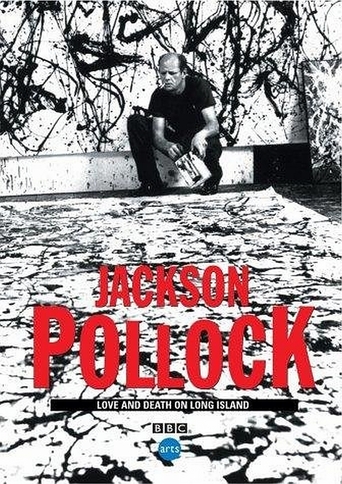

the leading man is my tpye
... View MoreIt's the kind of movie you'll want to see a second time with someone who hasn't seen it yet, to remember what it was like to watch it for the first time.
... View MoreLet me be very fair here, this is not the best movie in my opinion. But, this movie is fun, it has purpose and is very enjoyable to watch.
... View MoreThe film may be flawed, but its message is not.
... View MoreI thought director Teresa Griffiths did a very good job. The editing of the various interview subjects was especially effective. There was a lot of subtext to them. Not only did they cast light on the character and talent of Jackson Pollock, but they also revealed something of the character of that time in history and gave a feel for the artistic community that was Pollock's social circle. It made for reflection about the interpersonal dynamics in which Pollock functioned.What the film lacked, at least in my opinion, was a kind of overview of just what a seismic blast abstract expressionism and Pollock were to the art world and how much this shifted the focus and heart of it from Europe to the United States.But watching footage of Pollock working and seeing his enormous talent was quite affecting. As was hearing the interview with his wife Lee Krasner and the interview with the girlfriend who was with him in the automobile crash that killed him, Ruth Kligman.Krasner comes across as quite the strict enforcer which given the self-destructive direction so much of Pollock's behavior took was probably necessary to keep him somewhat in check and able to work and be productive.Kligman, on the other hand, as she spoke seemed to tend towards pretentiousness and be devoid of anything as bothersome as a conscience. She, no doubt, romanticized herself in her own mind as a "free-spirit" although others perhaps might characterize her with other adjectives. Much harsher adjectives, I'm guessing.There was also an interview with Ed Harris. I thought he made a very interesting observation about Pollock, as I understood it. That Pollock had reached a point where his "technique" was something that no longer challenged him. It was familiar to him. He knew he could do it. And that his cooperation at that time with the documentary being made about his life just served to point that out to him. In a sense, Pollock realized that abstract expressionism had become his schtick. And this drove him to begin drinking again and begin down that final self destructive path that ended his life.
... View More